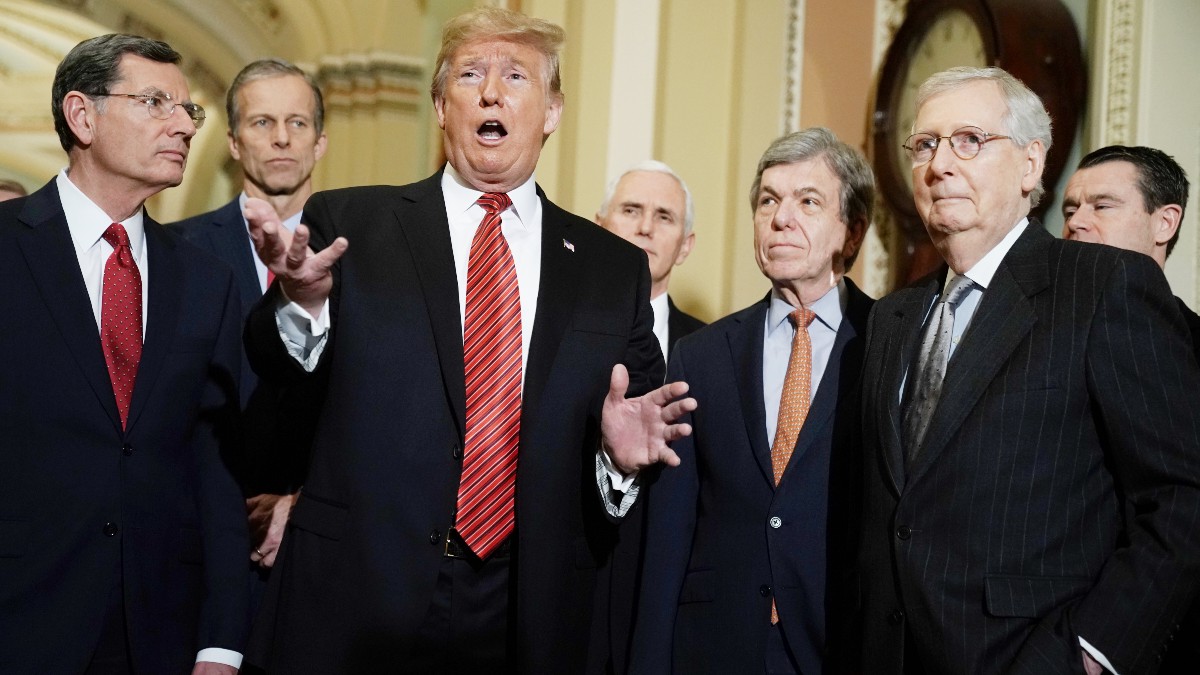In the ever-shifting landscape of American politics, a seismic rift is emerging within the Republican Party, with prominent figures boldly breaking ranks with the once-unchallenged leadership of former President Donald Trump. As murmurs of a potential Trump 2024 presidential bid reverberate through the GOP corridors, a growing chorus of dissent is echoing from within the party’s own ranks.
Leading this charge of the “Never Trump” Republicans are individuals who have reached a tipping point, disillusioned by the tumultuous tenure of the 45th U.S. president and emboldened to prioritize country over party loyalty.
One of the notable voices in this dissenting chorus is Senator Lisa Murkowski of Alaska. Murkowski, known for her independent streak within the Republican Party, notably diverged from her colleagues by voting to convict Trump in his second impeachment trial. Her rejection of the former president underscores a broader disillusionment with the trajectory of the GOP, marked by an ascendant wave of extremism and populism.
Similarly, Senator Mitt Romney of Utah, the Republican Party’s 2012 presidential nominee, has emerged as a vocal critic of Trump. Romney’s opposition to Trump spans a spectrum of personal, political, and moral differences, including condemnation of Trump’s divisive rhetoric, handling of the COVID-19 pandemic, and refusal to accept the outcome of the 2020 election. In a poignant rebuke following the Capitol riot of January 6, 2021, Romney condemned Trump’s incitement of violence on the Senate floor, unequivocally holding him accountable for the insurrection.
Senator Todd Young’s stance on Trump’s 2024 campaign exemplifies the nuanced position adopted by some Republicans. While Young acknowledges the need for the party to evolve beyond the Trump era’s policies, his level of support for Trump’s candidacy remains a subject of scrutiny, indicative of the delicate balancing act confronting GOP lawmakers.
Former Vice President Mike Pence, once a stalwart ally of Trump, has undergone a notable transformation in his relationship with the former president. Pence’s pivotal role in defying Trump’s pressure to overturn the 2020 election results, coupled with his subsequent criticisms of Trump’s actions and rhetoric, highlights a rift emblematic of broader fissures within the party.
Even figures from within Trump’s own administration, such as former Attorney General William Barr, have voiced opposition to Trump’s prospective 2024 presidential bid. Barr’s candid reflections in his memoir underscore the disillusionment festering within the ranks of Trump loyalists.
Senator Susan Collins of Maine, known for her moderate Republican stance and bipartisan collaboration, has likewise distanced herself from Trump’s orbit, signaling her reluctance to support his bid for reelection in 2024.
While die-hard Trump loyalists continue to pledge unwavering fealty to their embattled leader, the cracks in Trump’s base are becoming increasingly conspicuous. The erosion of support from once-loyal allies signifies a profound reversal of fortunes for a president who once commanded unyielding allegiance within his party.
As the Republican Party grapples with an existential crisis of identity, the impending 2024 election looms as a watershed moment that could determine the party’s trajectory for years to come. The fissures within the GOP serve as a stark reminder of the enduring tensions between principle and pragmatism, as Republicans navigate the treacherous terrain of post-Trump politics.


